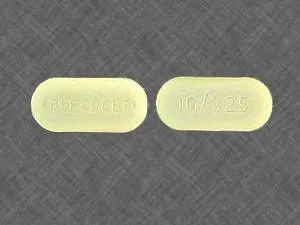Description
An opiate analgesic medication called dilaudid is used to treat moderate to severe pain. It is currently administered when other medications are insufficient to manage chronic or sudden pain and an opioid medicine is required to control it. Dilaudid 8 mg comes in a white, three-sided form with the mark p d 8.
It contains hydromorphone hydrochloride or generic hydromorphone, an opioid that effectively relieves both acute and chronic pain. It is notably two to eight times more potent than the drug morphine. Dilaudid’s priceless mechanism relies on its ability to bind to different opioid receptors. Its analgesic effects, however, mostly affect mu receptors. Additionally, hydromorphone affects its effects at the medulla level, causing cough suppression and respiratory depression.
Because it is classified as a Schedule II prohibited substance, there is a significant risk of drug addiction and misuse, which can result in physical and psychological dependence in the user. Dilaudid is also sold under other brand names, such as Hydrostat IR and Exalgo.
Uses of Dilaudid 8 mg:
Dilaudid is a powerful opioid medication that is primarily prescribed and used to treat extreme pain. These pain disorders may be brought on by cancer, trauma, surgery, etc.
The primary use of Dilaudid
Pain management: Dilaudid is a useful drug for treating pain, particularly when other medications are ineffective or difficult for patients to tolerate. In order to alter how pain is perceived, it binds opioid receptors.
Other uses of Dilaudid
- Chronic pain management
- Palliative or specialized medical care
- Anesthesia (due to hydromorphone)
Dosage and Dosing:
Dilaudid comes in tablet and oral solution forms, each with a different dosing strength. These dosages assist patients in adjusting their dosage based on how the medication affects them. A pill containing 8 mg of dilaudid is available. Strengths take the following forms:
- Oral Solution: 5 mg/5ml (1 mg/ml)
- Tablets: Including 8 mg it is available as Dilaudid 2 mg and Dilaudid 4 mg.
Patients can change their dosages based on their needs and how the medication affects them thanks to these flexible dosages.
Dosing of Dilaudid:
The doctor will specify and recommend the precise dosage based on a number of variables, including the patient’s age, the type of pain they are experiencing, the severity of the medication’s effects, etc.
A medical professional advises starting with a modest dosage of this drug. Adults with pain should take Dilaudid at a starting dose of 2–4 mg every 4–6 hours. 2.5 mL to 10 mL, 2.5 mg to 10 mg every 3 to 6 hours, is the dosage for oral solution.
After intake, Dilaudid usually begins to work 30 to 60 minutes later. For at least four to five hours, its analgesic effects can help reduce discomfort.
Side Effects of 8 mg Dilaudid:
Dilaudid, a painkiller, has mild to moderate side effects, just as other medications. While the majority of these adverse effects are transient, in rare instances, prompt medical attention may be necessary.
Below is a list of some of these effects:
- Biliary colic
- Seizures
- Decreased appetite
- Hypertension
- Constipation
- Laryngospasm
- Headache
- Restlessness
- Confusion
- Blurry vision
- Involuntary muscle contractions
- Fatigue
- Somnolence
- Dryness in mouth
- Flushing
- Tremor
- Dribbling
- Mental depression
- Drowsiness
- Impotence
Precautions:
- Dosing mistakes can lead to accidental overdose and death, so follow your doctor’s instructions exactly.
- Patients with respiratory depression, chronic pulmonary illness, cachectic, etc., require regular medication monitoring.
- Avoid drinking alcohol when using Dilaudid medications since this may result in side effects such as extreme sleepiness and dizziness.
- Dilaudid should not be taken when pregnant as it might be fatal to both the mother and the fetus.






Jennie carter –
Super convenient and trustworthy service. My order arrived safely and on time.